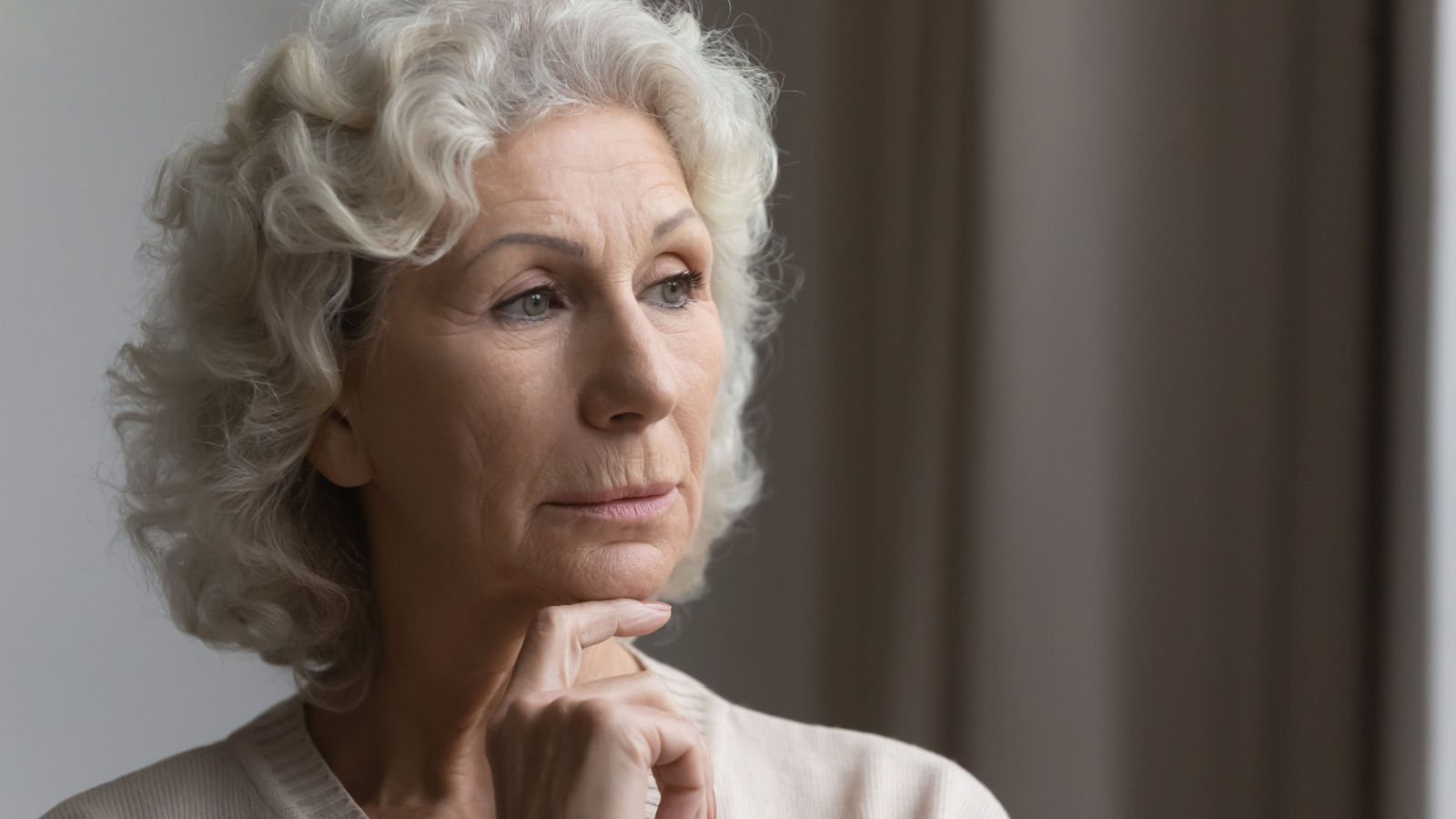Research consistently shows that certain activities, while perhaps appealing, pose greater risks and fewer benefits for those over the age of 60. To best navigate these years with vitality and joy, it is crucial to understand which habits to avoid and why.
We’ve outlines specific activities that seniors should consider replacing with safer alternatives, each backed by expert insights to guide you towards a healthier lifestyle.
Intense High-Impact Exercise

While regular physical activity is essential for maintaining health as we age, high-impact exercises like running on hard surfaces can be detrimental to joint health after 65. These activities significantly increase the risk of osteoarthritis and other joint issues. Opting for low-impact exercises such as swimming or cycling can maintain fitness without compromising joint health.
Overexposure to Sun

Skin becomes more sensitive with age, so excessive sun exposure can exacerbate skin aging and increase the risk of skin cancer.
Melanoma rates are notably higher in those over 65, primarily due to cumulative UV exposure. Wearing protective clothing and applying broad-spectrum sunscreen can mitigate these risks.
Heavy Lifting

Lifting heavy objects can pose a severe risk to seniors, potentially leading to muscle strains, herniated discs, or even fractures. As muscle mass naturally decreases with age, tasks requiring significant physical effort should be approached with caution.
Neglecting Dental Health

Dental health is a critical, often overlooked component of overall health, particularly in older adults. Gum disease, which can lead to serious health complications, becomes more prevalent with age. Regular dental check-ups and maintaining good oral hygiene can prevent many of these issues.
Skipping Regular Check-ups

Regular health check-ups become increasingly crucial past the age of 65 to monitor conditions that frequently affect older adults, such as hypertension or diabetes. Skipping these appointments can lead to undiagnosed conditions worsening over time. Early detection and management can significantly improve quality of life in later years.
Poor Diet Choices

Older adults need nutrient-rich diets to counteract the natural decline in physiological function and energy levels. Consuming high-fat, sugary, or highly processed foods can exacerbate health issues like heart disease and obesity. Instead, a balanced diet rich in fruits, vegetables, and lean proteins is recommended.
Staying Sedentary

A sedentary lifestyle can lead to numerous health problems, including obesity, type 2 diabetes, and cardiovascular disease. Research shows that maintaining even light levels of activity can help manage weight and reduce the incidence of chronic diseases. Simple activities like walking or gentle yoga can make a significant difference.
Ignoring Mental Health

Mental health issues, such as depression and anxiety, are not uncommon in older adults, yet they often go untreated. Isolation, which can lead to serious mental health declines, is particularly dangerous for seniors. Engaging in social activities and seeking professional help when feeling overwhelmed are vital steps in maintaining mental health.
Risky Financial Investments

The financial decision-making capacity may decline with age, making risky investments or complex financial products unsuitable for seniors. Losses can be particularly devastating as making up for them becomes harder with limited income during retirement. Sticking to safer, more liquid investments is generally wiser at this stage.
Long Hours of Television

Studies suggest that reducing screen time can lead to better physical and mental health. Instead, engaging in more interactive and physically engaging activities is beneficial.
Watching TV for extended periods can contribute to a sedentary lifestyle, increasing the risk of developing conditions such as obesity and cardiovascular disease.
Inadequate Sleep

Quality sleep is crucial for cognitive function and general health, yet many older adults neglect this aspect of health. Sleep disorders like insomnia and sleep apnea are prevalent among seniors and can significantly impair quality of life if left unaddressed. Establishing a regular sleep schedule and a conducive sleep environment are key.
Smoking

Continuing to smoke or using other tobacco products significantly increases the risk of developing respiratory diseases, cancer, and cardiovascular problems. The benefits of quitting smoking are immediate and substantial, even at the age of 65 or older. Seeking support to quit smoking can vastly improve longevity and quality of life.
Ignoring Vision and Hearing Tests

Regular vision and hearing tests are essential as sensory impairments can significantly decrease the quality of life and increase the risk of accidents. Many older adults often downplay the significance of deteriorating vision and hearing. Addressing these issues promptly can enhance daily functioning and safety.
Drinking Excessive Alcohol

Excessive alcohol consumption can have numerous negative health effects, particularly in older adults, including liver damage and exacerbation of existing health conditions. Moderate drinking, as defined by health guidelines, can be a safer approach, particularly for those managing chronic conditions. Regular consultations with a health professional can provide personalized guidance.
Isolating Socially

Social isolation can lead to significant declines in mental and physical health, including increased risks of mortality. Engaging in community activities, maintaining friendships, and utilizing modern communication technologies can combat isolation. It’s crucial for maintaining both emotional well-being and cognitive function.
Skipping Vaccinations

With age, the immune system weakens, making vaccinations an essential tool for preventing disease in seniors. Conditions like influenza and pneumonia are more severe in older adults, yet vaccination rates are worryingly low.
Avoiding Technology

While adapting to new technologies can be challenging for some seniors, avoiding digital devices can lead to increased isolation and reduced access to services. Technology can enhance communication, provide health management tools, and access to emergency services. Learning to use basic technology with the help of tutorials or classes can greatly improve an older adult’s independence and quality of life.
Driving Without Assessments

As reflexes and vision decline, driving can become more dangerous for both the individual and others on the road. Regular driving assessments can help determine whether modifications to driving habits or cessation is necessary. Alternatives like public transportation, ridesharing, or community transport services can provide safer mobility options.
Not Updating Legal Documents

Many seniors neglect to regularly update wills, living wills, and power of attorney documents. Changes in the legal or family situation, like the death of a designated power of attorney, can complicate legal matters if documents are not updated. Ensuring that all legal documentation reflects current wishes is crucial for protecting oneself and one’s assets.
Undertaking Stressful Travel

Travel can be strenuous at any age, but it poses particular risks for seniors, such as deep vein thrombosis on long flights and increased fatigue. Choosing less strenuous travel options and ensuring access to medical care while away can help maintain health and enjoyment. Planning ahead and considering health status when booking travel can prevent complications.
Consuming Unprescribed Medications

Older adults are more susceptible to adverse drug reactions, which makes taking unprescribed medications especially risky. Interactions between various medications and age-related changes in drug metabolism can lead to severe side effects. Consulting with a healthcare provider before starting or stopping any medication is essential.
Ignoring Foot Health

Foot health issues, if left unchecked, can lead to pain and mobility problems, severely impacting an older adult’s quality of life. Conditions like diabetes can exacerbate foot problems, leading to more serious complications. Regular check-ups with a podiatrist and wearing proper footwear can prevent many of these issues.
Participating in Extreme Temperatures

Exposure to extreme cold or heat is particularly dangerous for seniors, who may have a diminished ability to regulate body temperature. This can lead to heat stroke or hypothermia, both of which can be life-threatening. Avoiding extreme weather conditions and dressing appropriately can help maintain safe body temperatures.
Delaying Estate Planning

Procrastination on estate planning can lead to unnecessary complications and stress for family members. Clear estate planning, including directives regarding assets and end-of-life care, ensures that an individual’s wishes are followed and relieves the burden on relatives. Engaging with an estate planner or attorney to set clear, current plans is advisable.
Forgoing New Hobbies

Avoiding new hobbies can lead to a decrease in mental engagement and physical activity, which are vital for maintaining cognitive and physical health in older age. Engaging in new and varied activities can stimulate the brain and body, improving overall well-being. Whether it’s learning a musical instrument, painting, or gardening, new hobbies can provide joy and a sense of achievement.








